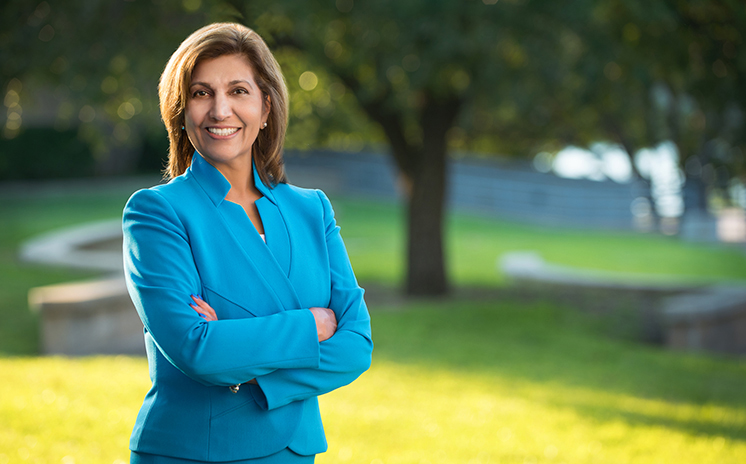Welcome to the Spring 2021 edition of Northwest Link, our bi-annual newsletter. Once again, our newsletter is focused on how faculty and staff have continued to serve our students and our community as we navigate a global pandemic. You will read about how we have worked hard during this difficult time and are also looking ahead to TCC’s planned return to in-person instruction in Fall 2021. Our faculty, staff and students have all learned a lot over the last year, and we will take those learnings with us as we bounce forward into a new normal.
Our spring newsletter always features a profile of our Chancellor’s Award for Exemplary Teaching recipient and this year is no different. We have a profile of Angela Chilton, associate professor of English, who has been an invaluable member of our campus community, both in the classroom and outside of it. We also have a story about some of our programs that continued to deliver in-person instruction throughout the pandemic, including our Public Safety Training Center, Professional Pilot and Horticulture programs. The faculty and staff in these programs had to forge an uncharted path in delivering high-quality, safe, in-person instruction during a very difficult time, and I am proud of the work they did for our students.
We are also highlighting the amazing work that is being done in our Common Reader Program. A cross-discipline team of faculty, led by Associate Professor of Humanities and Dance Kim Jackson, selected The Book of Unknown Americans as our campus’ common read for the year. They also programmed several events outside of class for students and the community to engage in, including a conversation with the author, Cristina Henríquez. Not only did this project tackle an important topic for our community, the story of immigrants in America, it did so by utilizing a best practice in integrative learning. This program encouraged students to make connections across disciplines and to engage with their coursework outside of the classroom. I look forward to more opportunities like this in the future.
Also in the newsletter this spring, we have stories about how Student Development Services and Academic Affairs have continued to serve students during the pandemic, using innovative, engaging strategies. The story about Student Development Services features several examples of how programs continued to support students, including our first ever virtual Northwest Navigators. Typically, that program had student, faculty and staff volunteers positioned around campus the first week of the semester to point students in the right direction. This year, our Student Activities team developed a virtual version of this program that was very successful. In Academic Affairs, our Academic Learning Center, which helps students with writing, Supplemental Instruction program and Science Learning Center were among several programs on campus that provided learning assistance to students in an online format during the pandemic. This story showcases the way these programs learned to serve students in a new environment and with new strategies.
Another program that had to make a dramatic shift was our Community Food Market, which is a monthly mobile food pantry. Our story on this important service features the team who plan the event and how they were able to rapidly pivot to a drive-through format to ensure the Community Food Market could continue during a time when there was great need in our community.
We conclude with a story on the ongoing redevelopment of the TCC Northwest campus. In February, the WADM building was demolished and, simultaneously, early work began to prepare for construction on our first two new buildings. This story also features details on the preparations being made by our library for the demolition of the WTLO building, which is planned for 2023. As always, our library team is well prepared and has several back-up plans to respond to various scenarios that may develop during unpredictable times.
As we approach the end of the Spring term, and this academic year, I find this is always a good time to reflect on our accomplishments as well as what we have learned. This is all the more important as we plan for our return to in-person services in Fall 2021. During a difficult and trying time in our community, we have persevered in serving our students and our community. I encourage us all to think about how far we have come and prepare for the work ahead.

